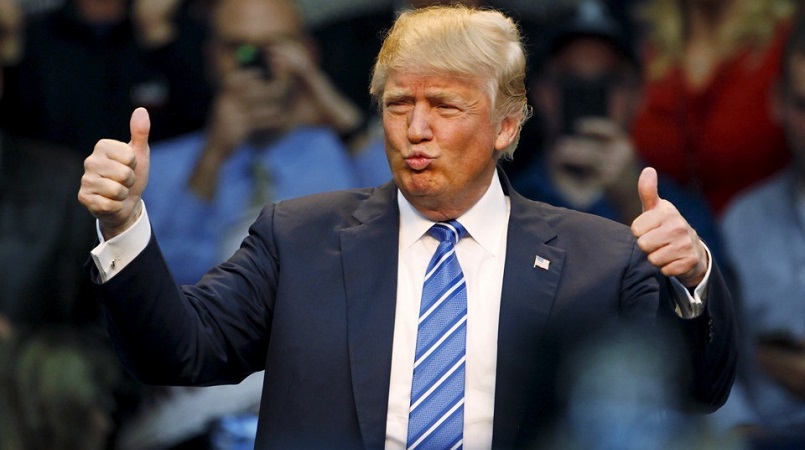
In a non-descript office in central London, young analytical minds are hard at work crunching thousands of pieces of data about every American adult.
They are Donald Trump's secret political weapon. His campaign paid more than $5 million in September alone to Cambridge Analytica, which claims it can convince voters to back him by tailoring Trump's political ads to their personalities.
Their approach combines micro-targeting, already in use in political campaigning, with psychological profiling. The company gathers up to 5,000 pieces of data about a potential voter to create a psychological profile, then adapts political ads to his or her personality and beliefs.
Using a survey usually placed on social media, the company invites users to take a personality test. The results of that test help the company group people under personality types measuring openness, conscientiousness, extraversion, agreeableness and neuroticism.
Data-crunchers then combine individuals' personalities with their voting history, where they shop, what they buy -- even what they watch on television.
The personality test doesn't indicate that this is the purpose of the test, so it's likely those who fill it out are unaware of how it will be matched with other data freely available or purchasable from cable and credit card companies.
With that, according to Cambridge Analytica CEO Alexander Nix, they know the best way to target the individual and what message to use.
"We can then marry this data with cookies to serve people (ads) though social media or digitally, or we can match these data to television viewing data so we can understand where the audiences are that we're interested in, what programs they're watching, and we can then serve them messages during those shows," he explained.
The Trump campaign did not respond to a request for comment.
The company does not release examples of ads it's produced for an ongoing campaign, but it did provide CNN with examples from its work for Texas Sen. Ted Cruz when he was challenging Trump in the GOP presidential primaries.
One was created for a "Stoic Traditionalist" who values time in isolation, is unadventurous and tends to be unassuming in their disposition. It shows Cruz alone with the tag line "keep calm and Cruz on." The other, a "Relaxed Leader" who is sociable, generally optimistic and empathizes with the emotions of others, depicts the whole Cruz family with the words "our best days are ahead."
Despite Trump's considerable investment in the venture, as spelled out in filings to the Federal Election Commission, the strategy hasn't always delivered the desired results.
Cruz paid Cambridge Analytica $5,805,548, according to FEC filings.
But the effort did not secure him enough support to become the party's nominee, though the company maintains it did help him grab the spotlight in the Republican primaries.
Sasha Issenberg, author of "The Victory Lab: The Secret Science of Winning Campaigns," has doubts about the effectiveness of the psychoanalysis and profiling used by Cambridge Analytica, such as in the case with Cruz.
He noted that the Cruz campaign thought they needed to figure out nuanced differences between the Texas senator and competitors like Florida Sen. Marco Rubio and Wisconsin Gov. Scott Walker.
In the end, Issenberg said, the data yielded "something like 160 different segments of potential voters that were separated on these personality characteristics, but also by issues, by broad attitudes about politics."
They then developed 160 different tracks of digital advertising and direct mail, according to Issenberg. But those distinctions might have been unnecessarily fine.
"It basically became unwieldy in the context of the campaign," he said. "The number of people that you need basically just to create all this content often offsets whatever the efficiency gain you would gain by targeting narrowly."
He added, "You probably would get a lot of the impact if you just sent the same message on gun rights to your neurotic gun rights supporters as you would to your extroverted gun rights supporters."
Though Cruz and fellow GOP primary candidate Ben Carson couldn't ride the company's strategy to success, the firm said it works on eight to 10 political campaigns each year.
FEC filings show many of the campaigns helped by the firm -- a US-incorporated affiliate of the SCL Group -- to have been Republican.
Cambridge Analytica has been linked to the reclusive GOP donor Robert Mercer, though the company would not confirm or deny the connection.
Either way, it will have another test of its techniques when the Republican nominee tries to win the White House in the vote next Tuesday.
